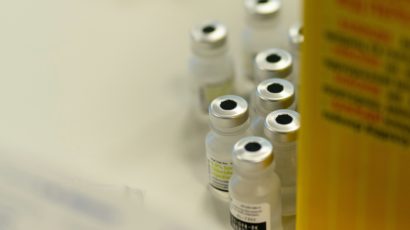Posted by Dr Michelle Wright
You’re listening to Health Matters. Dr Michelle Wright here. Director of First Aid training and Health Education company, HealthFirst.
I’m lucky in that I’ve never had a cold sore, despite the fact that my mother and some of my siblings have suffered.
What are the causes and symptoms of cold sores?
Its herpes simplex virus type 1 that causes the majority of cold sores and you usually get your first one as a child – the virus being passed on by close contact and kisses from a family member with a cold sore.
You may have little in the way of symptoms at the time of your first infection but the problem with the herpes simplex type 1 virus is that once you become infected, it remains dormant and inactive in your nerve endings around your mouth. And it stays there for life.
Intermittently, the virus can become active again and you can have a cold sore outbreak.
You will typically feel a tingling or itching sensation around your mouth a few hours or days before the typical cold sore blister starts to develop.
The blisters contain fluid and can weep and be very painful for a few days before they finally scab over.
What can ‘trigger’ a cold sore outbreak and what should and shouldn’t you do?
Some people find that there are various thing that can ‘trigger’ a cold sore outbreak. For example, if they are run down or stressed, for women if it’s the time of the month, if the person is unwell for another reason, or in some people, an outbreak can be triggered by being out in the sun.
Before it has dried out and scabbed over, your cold sore is very infectious to others. So avoid kissing or skin contact, especially with small babies and people who have a suppressed immune system for whatever reason. You should also be meticulous in your hand washing and keep a towel for yourself at home.
If you’re a contact lens wearer, then it is very important that if you have a cold sore outbreak, you wash your hands before you touch your contact lenses. If herpes virus infection gets into your eye, this can be very serious.
What are the various treatments that can be use for cold sores?
Simple painkillers by mouth such as paracetamol or ibuprofen may be helpful.
Pain killing gels can also be bought in pharmacies but be careful when you apply these that you dab the gel on the cold sore rather than rubbing it in – this may damage the blister and spread the virus to the surrounding skin.
Most people have also heard about the antiviral cream aciclovir – Zovirax being its trade name.
This cold sore treatment can be bought with no prescription in pharmacies in Switzerland. It should be started as soon as you feel the tingling or itching sensation (so before blisters appear).
Unfortunately, it has little effect on existing blisters. If you’re using it, you need to apply the cream 5 times a day for 5 days. Again, dabbing the cream on rather than rubbing it in is important.
Some people have also had good results from a special narrow band light treatment. Ask your pharmacist for more information.





